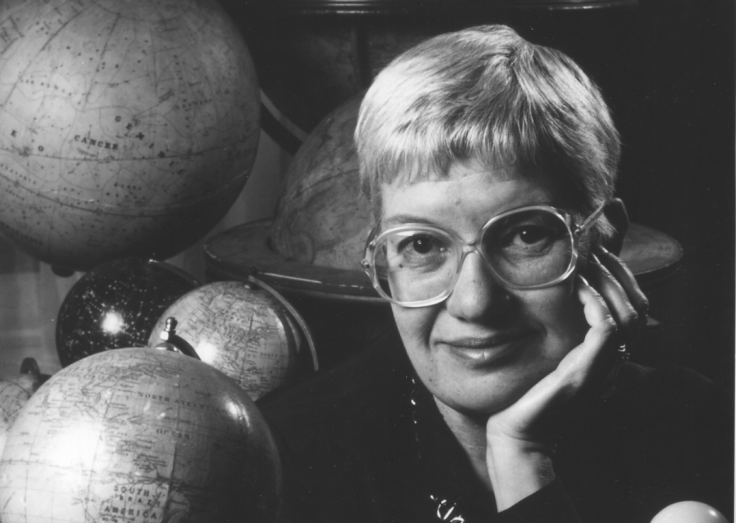Vera Rubin, Pioneering Dark Matter Astronomer And Feminist Icon, Dies At 88

American astronomer and feminist Vera Rubin, who found the first observational evidence of dark matter in the 1970s, died of natural causes on Sunday. She was 88.
“Vera Rubin was a national treasure as an accomplished astronomer and a wonderful role model for young scientists,” Matthew Scott, president of the Carnegie Institution, where Rubin did much of her pioneering work, said in statement released Monday. “We are very saddened by this loss.”
Rubin, the only astronomy major to graduate from the women’s college Vassar in 1948 and only the second female astronomer to be elected to the U.S. National Academy of Sciences, was born July 23, 1928. She obtained her master’s degree from Cornell University after she was told that women were not allowed to enroll for Princeton University’s astronomy program — a policy that remained in place till 1975 — and her Ph.D. from Georgetown University, where she went on to teach for 10 years.
“Vera was an amazing scientist and an amazing human being,” Neta Bahcall, an astrophysicist at Princeton University, said in the statement. “A pioneering astronomer, the ‘mother’ of flat rotation curves and dark-matter, a champion of women in science, a mentor and role model to generations of astronomers.”
After observing dozens of galaxies in the 1970s, Rubin and her colleagues found something odd. Stars far from the galactic center were moving as fast as those near the centre — a phenomenon that violated Newtonian gravitational theory.
This led to the discovery that something other than the mass of visible matter was responsible for the stars’ motion. This “dark” matter is now known to make up 27 percent of the universe, and a staggering 85 percent of the universe’s mass. It does not interact with normal matter through electromagnetic force and therefore does not absorb, emit or reflect light, making it dauntingly hard observe and study.
The visible matter — planets, stars, galaxies — constitute just 5 percent of the cosmos, the remaining 68 percent being made up of dark energy.
“I think many people initially wished that you didn't need dark matter,” Rubin said in an interview with the physicist Alan Lightman in 1989. “It was not a concept that people embraced enthusiastically. But I think that observations were undeniable enough so that most people just unenthusiastically adopted it.”
Even now, scientists are no closer to understanding what dark matter is — although several theories regarding its composition have been put forward.
In addition to her trailblazing work in astronomy, Rubin was also an outspoken advocate for increasing the role of women in science.
“I live and work with three basic assumptions,” Rubin once wrote. “(1) There is no problem in science that can be solved by a man that cannot be solved by a woman. (2) Worldwide, half of all brains are in women. (3) We all need permission to do science, but, for reasons that are deeply ingrained in history, this permission is more often given to men than to women.”
© Copyright IBTimes 2024. All rights reserved.






















